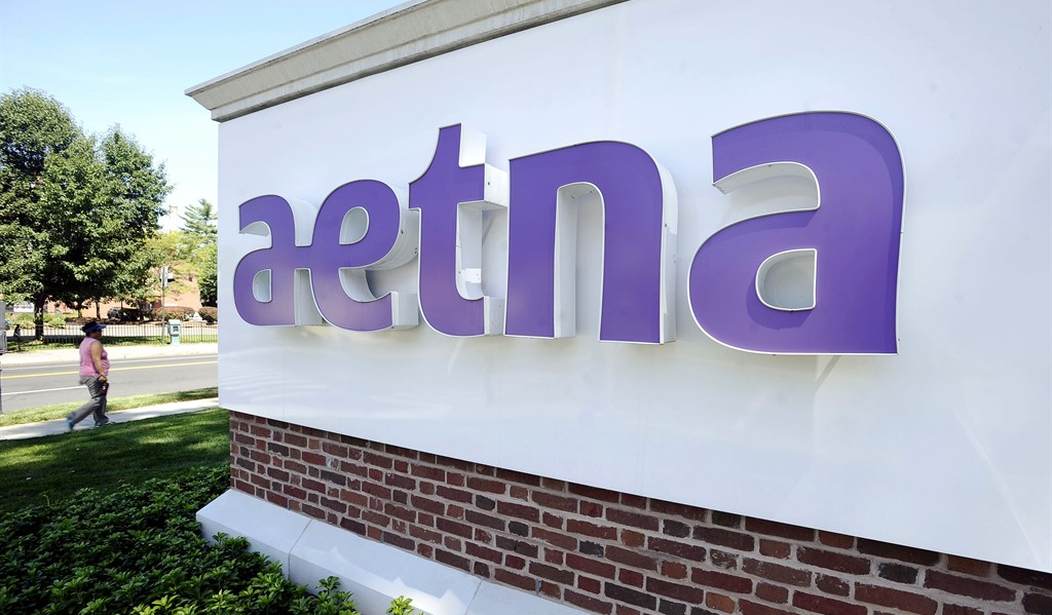Much has been written about Aetna and their decision to pull out of 11 of the 15 state exchanges that they participate in through Obamacare. They claim that they have already lost $430 million in 2016. They join United Healthcare, which claims that it lost $1 billion in 2015-16, and Humana, who have already announced their departures from the exchanges. Thus, as predicted by so many, the slow death spiral of the Affordable Care Act is occurring before our eyes.
As always, the losers are the patients who in many states have no choices remaining when shopping for health insurance. The Kaiser Family Foundation expects the average insurance premium to rise nine percent in 2017, which means a monthly premium of $281 dollars for the lowest level plan on the exchanges. In states where there is no competition, the rates will surge even higher. For this more expensive insurance, patients will receive less choice, as the companies continue to narrow their physician panels in an attempt to maximize their profits. Patients will need to assume more financial responsibility with deductibles increasing on average 8.4 percent according to data from the Robert Wood Johnson Foundation. The average deductible for a Silver Plan on the exchanges, the most popular plan, are now $2994 annually before insurance pays a penny. For the Bronze Plans, that figure is much higher at $5629.
So we should be sympathetic to the insurance companies who are bleeding money by participating in the Obamacare exchanges, right? Not when you look at things in context and not simply with the insurance company spin.
In 2008, prior to Obamacare, the major insurance companies were all struggling as reflected by the value of their stock during that period. This all changed though after passage of the ACA as a consequence of new rules governing insurance which their lobby, America’s Health Insurance Plans (AHIP), helped create. One of those changes involved underwriting; a standard in the insurance industry.
It was no longer permissible to use health status as a criteria for underwriting insurance policies. Age however could be used which means that an older person (generally sicker) could only be charged a maximum of three times that of a healthier, young person. So what happened? Did rates come down for the older patients? No, rates went up for younger, healthier individuals. And insurance company revenues soared to previously unseen levels.
In 2014, UHC reported profits of $10.3 billion on revenues of $130.5 billion. That increased in 2015 to $11billion in profits on $157 billion in revenues. The CEO of UHC, Stephen Hemsley was compensated $66 million in 2014. Other healthcare insurance executives did not fare quite as well, as Aetna CEO Mark Bertolini had to settle for a compensation package of $17.3 million in 2015, a paltry $2.2 million raise from his 2014 earnings.
To better understand the extent of insurance company profits since Obamacare was implemented, simply look at the stock values of these publicly traded companies. Humana’s stock is up 1010 percent, Cigna’s has risen 1113 percent, and UHC is not far behind at 814 percent. Amazingly, Wellcare, which deals exclusively in managing Medicaid contracts, has posted a 1410 percent gain in their stock over the past 6 years of Obamacare.
So why are insurance companies crying about losing money? Because it is true, but only with regard to the segment of their business involving the Obamacare exchanges. For the remainder of their business that was made possible because of the ACA, they are doing quite well. What they are now doing is a practice known in the industry as “purging”. This is a method that has been used for years by insurance companies to dump unprofitable accounts. Most recently this occurred in 2015 with small business customers. This is a segment of their business with high medical loss ratios. They lost money on this segment of their business, so they either raised the premiums so high that no one would purchase it, or eliminated it altogether.
The insurance companies participated in the shake-up of their industry so that they could maximize their profits. They even negotiated a way to give themselves additional taxpayer money to make up for their losses on the exchanges, but Congress pulled the plug on that. So after being an accomplice in this healthcare debacle, and putting themselves in a position to rake in record profits, their greed knows no bounds. They want to purge the losses that they helped orchestrate.
Don’t weep for the insurance companies. These companies and their lobbyists (AHIP) are complicit in this mess. American consumers and policyholders should understand the truth and demand better service from these companies as well as the members of Congress who willfully passed Obamacare before they knew what was in it and continue to take money from the insurance industry.

























Join the conversation as a VIP Member